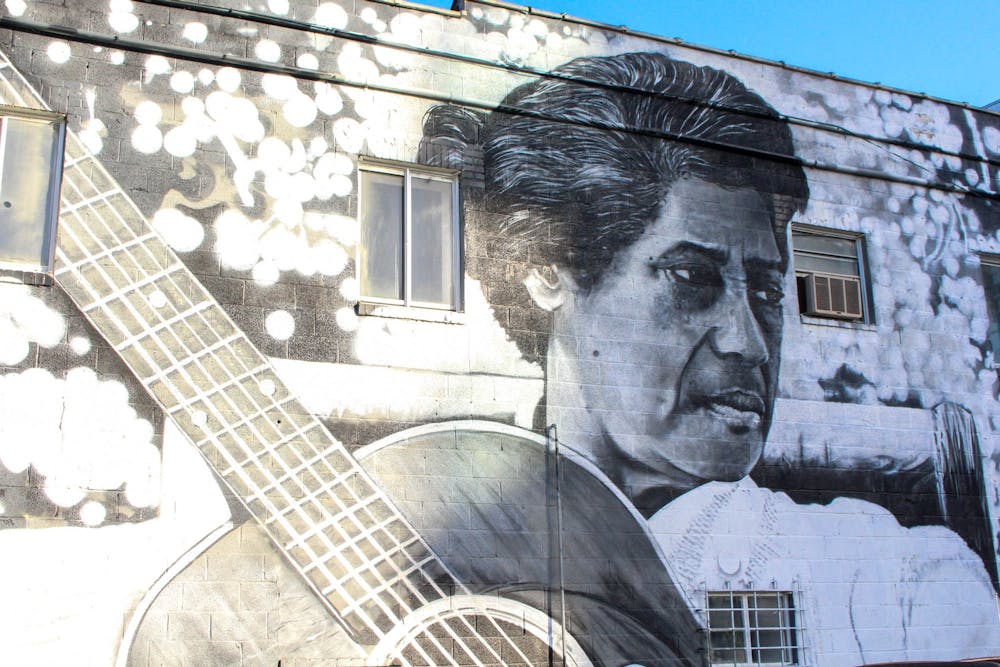Due in part to Mike Seeger's early recordings of her work, Cotten began to give small concerts in the homes of government leaders, including John F. Kennedy.
Because she was left-handed, Cotten played the guitar upside down. She also adopted a style of music that was traditional to the Carrboro and Chapel Hill region at the time.
Cotten developed a unique guitar style that came to be known as "Cotten style." She picked the strings with her left hand, which was the opposite of the usual method. She also picked the bass strings with her fingers and the treble strings with her thumb.
“She was definitely a masterful finger-picker. And in this area, that meant to only use two fingers,” Hinson said.
Cotten created various songs, including celebratory songs, sacred songs, ballads and marches. In her songs, Cotten often references the hardships she faced throughout her life.
For example, In her song “Shake Sugaree,” she sings “Pawn my chair, pawn my bed, ain’t got nowhere to lay my head.”
She also wrote the classic song ''Freight Train'' when she was 11, although she did not begin performing until she was 60.
Cotten won a Grammy for "Ethnic or Traditional Folk Recording" in 1985. She continued playing until her death in 1987.
Hinson said Cotten’s songs could be listened to as a historical record, or a testimony that offered insight into her difficult life.
He also said the story often told of Cotten has effectively erased her history as a domestic servant for white families and replaced it with a portrait of a sweet, masterful old woman who played a delicate guitar style.
Mandella Younge, the associate producer of Re/Collecting Chapel Hill, a history podcast, said Cotten was never given an opportunity to be well-known until she was in her 60s, due to her need to work and earn money, as well as discrimination during the Jim Crow era.
Hinson said she performed in coffee houses, small venues and auditoriums — and folk festivals after gaining notoriety — but not large stages.
To get the day's news and headlines in your inbox each morning, sign up for our email newsletters.
“I’m not sure that we always recognize exactly how fortunate we are as a community and as a country to even know that she existed,” Younge said.
Despite leaving Carrboro at a young age, Cotten has been honored by the Town with a mural and a bike path, according to Damon Seils, the mayor of Carrboro.
“Her connection with Carrboro today is really about her musical legacy,” he said.
Scott Nurkin, a Carrboro muralist, painted the mural of Cotten. Nurkin said the mural's purpose is to bring awareness to a “luminary” like Cotten, and showcase the fact that she was born and raised in Carrboro.
Hinson said the mural portrayed Cotten as a “strong, powerful figure” and “larger than life,” rather than “frail” or the “grandmother” that history had labeled her as.
Seils noted that Cotten’s induction into the Hall of Fame is a long-overdue recognition of her impact on American music.
@DTHCityState | city@dailytarheel.com



